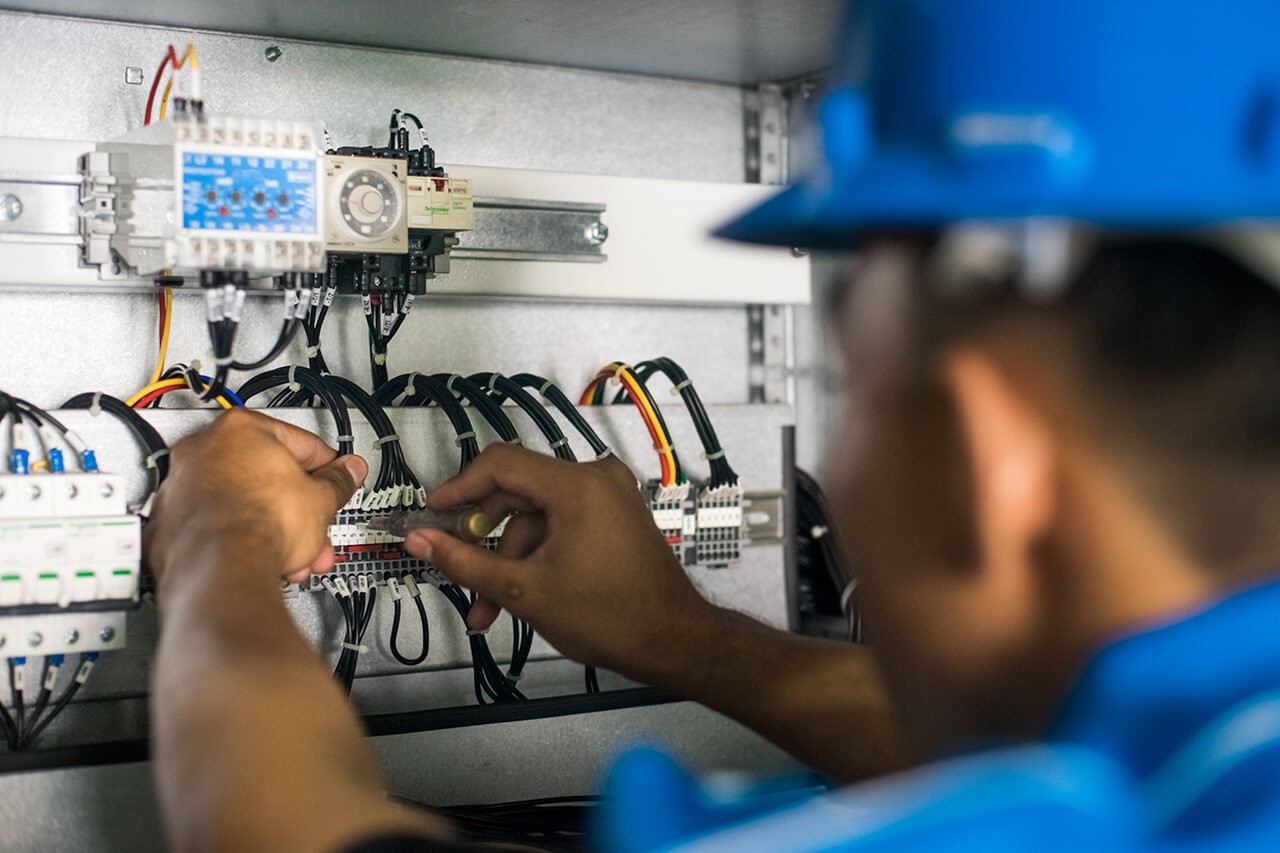Comprehensive Solutions from BRE Services for All Your Requirements
Comprehensive Solutions from BRE Services for All Your Requirements
Blog Article
Demystifying Electric Installation: Understanding Codes and Laws for a Legal and Safe Configuration
In the realm of electrical setup, adherence to codes and guidelines is paramount to make sure both legality and safety and security. The intricacies bordering electric work can be complicated, yet acquainting oneself with the established criteria is vital to navigating this field with confidence. By comprehending the details of the National Electric Code and neighborhood building ordinance, people can assure that their installations satisfy needed precaution and are in compliance with the law. The journey to demystifying electrical setup goes past simple knowledge with laws; it necessitates an extensive understanding of exactly how to implement secure electrical practices properly.
Significance of Electrical Codes
The adherence to electric codes is crucial in ensuring the safety and security and reliability of electrical installations. Electrical codes serve as a collection of standards and guidelines that determine the correct design, installation, and upkeep of electric systems. These codes are established to decrease the danger of electric risks, fires, and various other security problems that might occur from faulty electrical work.
Furthermore, electrical codes are routinely updated to integrate brand-new technologies, finest methods, and precaution. Remaining upgraded with these codes is crucial for specialists in the electrical market to make sure that their job meets the most recent security criteria. Ultimately, the significance of electric codes hinges on creating a safe and secure and effective electrical infrastructure that profits both individuals and neighborhoods.
Secret Regulations for Safety
Several fundamental regulations control the safety and security standards in electrical installations. One crucial regulation is the National Electric Code (NEC), which supplies standards for safe electrical style, installment, and evaluation to shield people and property from electric hazards. The NEC covers facets such as wiring techniques, grounding, overcurrent defense, and tools installment to ensure a risk-free electrical system.
One more critical regulation is the Occupational Security and Health And Wellness Administration (OSHA) requirements, which concentrate on the safety and security of employees entailed in electrical installations (BRE Automation Australia). OSHA guidelines consist of demands for appropriate training, security treatments, and individual safety tools to stop workplace accidents and injuries
Furthermore, the International Electrotechnical Payment (IEC) standards aim to harmonize electric setup policies on a global range. These requirements address issues like electric devices safety, electro-magnetic compatibility, and power performance to promote harmony and security in electric installments worldwide.
Conformity with these vital guidelines is vital to guarantee the security and validity of electrical installments, securing both individuals and home from the dangers related to electricity.
Understanding National Electric Code
Secret regulations such as the National Electrical Code (NEC) offer essential standards for secure electrical layout, installation, and examination to guarantee the defense of people and building from electric threats. The NEC, also called NFPA 70, is a comprehensive collection of criteria for electrical setups that are upgraded every three years. It is established by the National Fire Defense Organization (NFPA) and is commonly adopted across the USA.
The NEC covers numerous aspects of electrical job, consisting of wiring techniques, grounding, overcurrent protection, and devices setup. It intends to protect people and property by attending to possible risks connected with electrical systems. Conformity with the NEC is generally imposed by neighborhood authorities having jurisdiction (AHJs), such as developing code authorities and assessors.
Recognizing the NEC is crucial for electrical specialists, developers, BRE Services and examiners to make sure that installments fulfill the necessary safety and security needs. By sticking to the NEC standards, specialists can aid prevent electrical accidents and ensure the reliability of electrical systems in residential, commercial, and commercial setups.

Compliance With Neighborhood Building Ordinance
Comprehending and adhering to neighborhood structure codes is important for making certain the safety and security and compliance of electrical setups within a details territory. These codes describe specific needs for electric installments, such as the kind of circuitry to be used, placement of outlets, grounding techniques, and tons capabilities.
When it comes to electrical installments, failing to conform with regional structure codes can lead to severe effects. Non-compliant installments might posture safety and security hazards, increase the risk of electric fires, and lead to costly penalties or lawful problems. Furthermore, insurance policy firms might decline to cover damages resulting from installations that do not meet local structure code needs. Therefore, it is crucial for electricians and professionals to stay educated around and strictly comply with the local building ordinance suitable to their jobs.
Making Sure Safe Electrical Practices
Exercising stringent adherence to established safety methods is important in the field of electrical installations to mitigate possible dangers and make sure the wellness of individuals and residential properties. Security in electrical job includes various aspects, beginning with the appropriate training of personnel entailed in installation, upkeep, and fixing. By prioritizing safe techniques, electrical installments can work efficiently while decreasing the probability of accidents or damages.
Final Thought
Finally, adherence to electric codes and policies is critical for ensuring the safety and validity of electrical installments. Comprehending the National Electric Code and conformity with regional building ordinance are vital for a safe configuration. By following these guidelines and practicing risk-free electric techniques, individuals can protect against prospective hazards and make sure the correct functioning of their electric systems.
Report this page